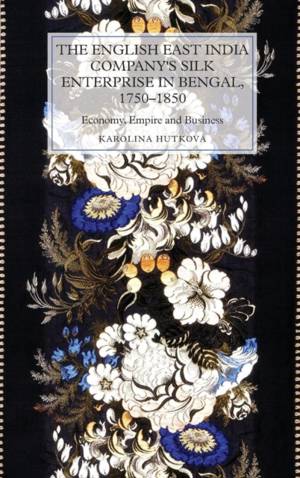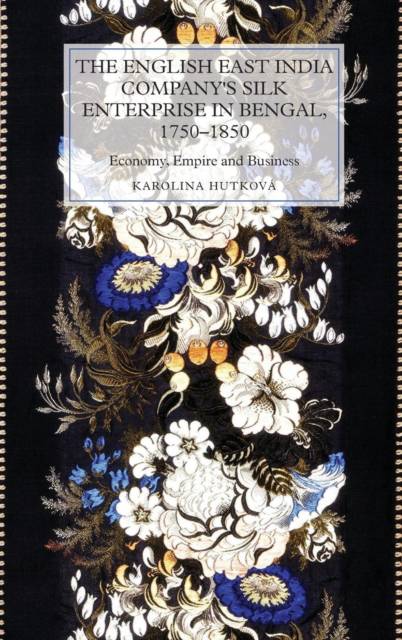
Bedankt voor het vertrouwen het afgelopen jaar! Om jou te bedanken bieden we GRATIS verzending aan op alles gedurende de hele maand januari.
- Afhalen na 1 uur in een winkel met voorraad
- Gratis thuislevering in België
- Ruim aanbod met 7 miljoen producten
Bedankt voor het vertrouwen het afgelopen jaar! Om jou te bedanken bieden we GRATIS verzending aan op alles gedurende de hele maand januari.
- Afhalen na 1 uur in een winkel met voorraad
- Gratis thuislevering in België
- Ruim aanbod met 7 miljoen producten
Zoeken
The English East India Company's Silk Enterprise in Bengal, 1750-1850
Economy, Empire and Business
Karolina Hutková
€ 177,45
+ 354 punten
Omschrijving
This book examines the silk-processing activities of the English East India Company in Bengal. This book examines the silk-processing activities of the English East India Company in Bengal and presents the Company as a manufacturer rather than a trading body or political agent. Silk was one of the first globally traded commodities; its luxury status and potential to create tax revenues and employ the poor gave it a strategic importance in many economies in Eurasia. The silk industry was also an important sector in Britain; yet, as raw silk could notbe produced domestically, the British government encouraged companies to source supplies from its colonies and the territories under its influence. Such projects proved to be challenging; the most successful was the English EastIndia Company's venture in Bengal, where the Company invested over 1 million into developing raw silk production to meet the demands of British weavers. A key component was the transfer of silk technologies from the West to the East - one of the first in this direction rather than vice versa. The outcome of this enterprise was influenced by the business and management capacities of the Company and by British and, eventually, imperial policies, with serious consequences for the Indian economy. The book ultimately presents a case of manufacturing failure, but one resulting from British imperial policies rather than colonial economies. KAROLINA HUTKOVÁ is an LSE Fellow in Economic History at the London School of Economics and Political Science.
Specificaties
Betrokkenen
- Auteur(s):
- Uitgeverij:
Inhoud
- Aantal bladzijden:
- 275
- Taal:
- Engels
- Reeks:
- Reeksnummer:
- nr. 16
Eigenschappen
- Productcode (EAN):
- 9781783273942
- Verschijningsdatum:
- 21/06/2019
- Uitvoering:
- Hardcover
- Formaat:
- Genaaid
- Afmetingen:
- 156 mm x 234 mm
- Gewicht:
- 562 g

Alleen bij Standaard Boekhandel
+ 354 punten op je klantenkaart van Standaard Boekhandel
Beoordelingen
We publiceren alleen reviews die voldoen aan de voorwaarden voor reviews. Bekijk onze voorwaarden voor reviews.












